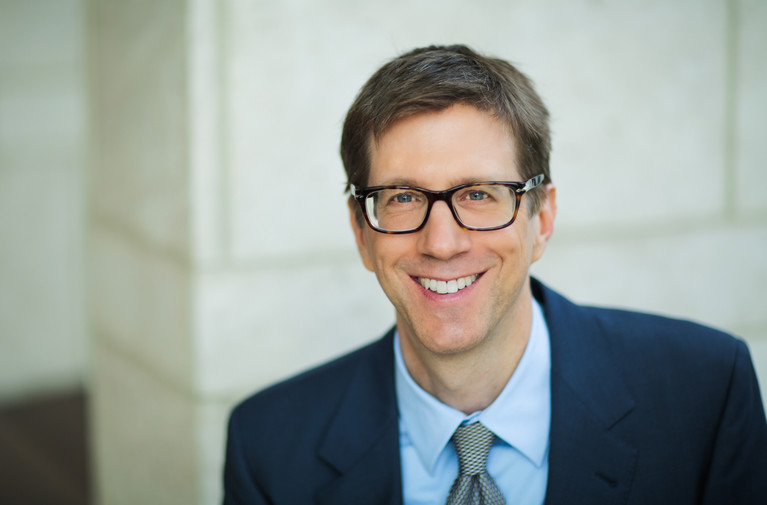Wayne State University Names Law Dean Richard Bierschbach as Interim President After Kimberly Espy’s Sudden Resignation
Wayne State University’s Board of Governors wasted no time filling a leadership void, appointing Law School Dean Richard Bierschbach as interim president just hours after accepting President Kimberly Andrews Espy’s resignation. This swift transition at the Detroit-based public research powerhouse highlights ongoing faculty tensions and the push for collaborative stability amid national higher education challenges.
Kimberly Andrews Espy’s Resignation: A Turbulent Two-Year Tenure Ends
Kimberly Andrews Espy, Wayne State’s first female president, announced her resignation on September 17, 2025, citing personal reasons in a campus-wide email sent just before 3:30 p.m. The Board of Governors convened a special meeting at 5 p.m. to formally accept it, thanking her for her service since August 1, 2023.
Espy, 57, arrived from the University of Texas at San Antonio with a $690,000 base salary, set for 3% annual increases under a five-year contract signed in July 2023. Her departure came with a $760,000 settlement—considered a “bargain” by experts—plus health care benefits, in exchange for waiving faculty return rights.
Sources point to strained relations with the bipartisan board, exacerbated by the August 2025 placement of School of Medicine Dean Dr. Wael Sakr on paid leave without explanation, sparking faculty outrage. Interim dean Dr. David Rosenberg resigned shortly after, citing discomfort in the role. A lawsuit from 12 students arrested during a 2024 pro-Palestinian protest further fueled criticisms over free speech and governance.
Richard Bierschbach Steps Up: A Proven Leader Takes the Helm
The board unanimously selected 53-year-old Richard Bierschbach, dean of the Law School since 2017 and reappointed in 2022, as interim president. Board Chair Shirley Stancato praised his “strong, trusted, and transformational” style, noting improvements in philanthropy, programs, and postgraduate outcomes that boosted the school’s national ranking.
Bierschbach, a John W. Reed Professor of Law specializing in criminal procedure and administrative law, expressed humility in a statement: “I’m humbled that the board has asked me to do this… I can promise to do my level best to work with you all.” He plans to return to the deanship post-interim, with an acting dean to be named in consultation with faculty.
In a Thursday campus message, Bierschbach emphasized advancing Wayne State’s mission as “urban public education as it should be,” drawing from his parents’ working-class roots to connect with diverse students.
Background: Wayne State’s Challenges in a Shifting Landscape
Founded in 1868, Wayne State enrolls 24,000 students and holds Carnegie R1 status, driving Detroit’s economy through research in health, engineering, and urban studies. Espy’s tenure overlapped with national pressures, including Trump administration probes into federal funding and DEI initiatives, plus campus protests over divestment from Israel.
The medical school’s instability—Sakr’s leave bypassed faculty input—highlighted governance rifts, with the union decrying “erosion of shared decision-making.” Bierschbach’s legal expertise positions him to navigate these, from lawsuits to budget cuts.
Reactions: Faculty Relief Meets Student Demands
Law faculty celebrated the choice. Professor Peter J. Hammer called Bierschbach a “builder” adept at risk assessment in “traumatic” times. Associate Professor Justin Long deemed it the “best decision” for mending faculty-administration ties. Social Work Dean Sheryl Kubiak echoed, “He’s a wonderful partner, great collaborator.”
Students expressed mixed feelings. Wayne Academic Union President Jennifer Sheridan Moss welcomed potential improvements but stressed accountability on Sakr’s case and protest handling. An anonymous undergrad told WXYZ, “We need leadership that listens.”
Higher ed consultant John Austin noted presidents face “skyrocketing demands,” urging a focus on fit over speed.
Impacts on Michigan and U.S. Higher Ed: Stability for Students and Economy
This shift bolsters Detroit’s revival, where Wayne State fuels 50,000+ jobs via partnerships in auto and health tech. Interim leadership like Bierschbach’s prioritizes continuity, safeguarding grants amid federal scrutiny.
Nationally, it spotlights public universities’ governance woes: Unions battle top-down moves, while political divides threaten funding. Economically, steady operations support Michigan’s $15 billion higher ed sector. For students, it means fewer disruptions in classes and research. Politically, it influences state funding fights in swing-district Michigan. Technologically, ongoing med school AI projects could thrive, advancing U.S. health innovations.
Sports fans? Wayne State’s NCAA Division II teams benefit from focused admin, ensuring scholarships and facilities upgrades.
Charting the Course Ahead: A Bridge to Brighter Days
Wayne State University’s naming of Richard Bierschbach as interim president after Kimberly Andrews Espy’s resignation caps a tense chapter, prioritizing collaboration to heal divides. With a national search for a permanent leader underway, Bierschbach’s steady hand—rooted in law and loyalty—promises progress on academics, research, and community ties. In higher ed’s high-stakes arena, this move reaffirms Wayne State’s role as Detroit’s indispensable engine, poised for renewed momentum.
Wayne State interim president, Richard Bierschbach WSU, Kimberly Espy resignation 2025, Wayne State Law Dean, WSU Board of Governors, Wayne State medical school controversy, university leadership transition, Detroit higher education news, faculty governance WSU, WSU free speech lawsuit
